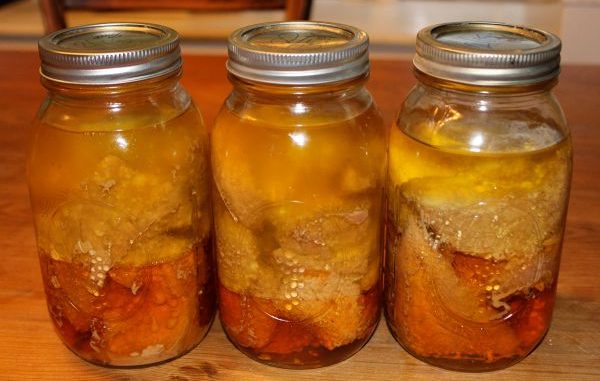
Canning offers indefinite storage, seasoning opportunities
An offshore trip is pricey, but when you get into a bunch of blackfin the payoff is a lot of great eating.
The problem is that blackfin isn’t yellowfin, which means it doesn’t freeze as well. At least that’s what I’m told. Being a redneck (and I say that with pride), I’ve never paid much attention to those “rules” about fish like blackfin and white trout not freezing well.
But that’s another story.
Let’s just go with the oft-repeated mantra that blackfin doesn’t freeze well.
So, assuming that’s correct, what is one to do with all that blackfin after you’ve eaten a couple of meals of grilled tuna steaks?
Veteran offshore guide Capt. Peace Marvel said he simply cans it. Yep, just like veggies from the garden.
The process is pretty simple, and it allows the fish to be seasoned so it’s ready to go when opened.
“It stays good indefinitely and tastes way better than the stuff from the store,” Marvel said. “A 16-pound blackfin made 35 well-trimmed 32-ounce jars.
“Yum!”
The list of the what’s needed to properly can that big catch is pretty basic:
• Pressure cooker
• A couple of gallons of olive oil
• Jalapeños
• Fresh garlic
• Kosher salt
Of course, you can add or subtract from the list of flavoring ingredients to suit your tastes.
“If you want, you can add peppers, garlic, soy, a shoe lace if you want — whatever flavoring you like,” Marvel said.
And canning are equally as simple.
1) Cut tuna steaks into 1-inch-by-4-inch strips.
2) Fill a mason jar with the raw strips and your choice of seasonings, using a wooden spoon to pack it in fairly tightly. Leave about 2 inches of empty space at the top of the tuna.
3) Pour olive oil into the jars, using the spoon to help it soak down through the tuna.
“You usually have to let it sit a few minutes to let it soak in, and then pour some more in,” Marvel said.
4) Put a dash of kosher salt in, and close the jars and put them in the cooker. Bring the pressure up to 11 to 14 and cook for 100 minutes.
5) Turn off heat and allow to cool.
6) Store jars until needed.
7) Take the jars out and eat up!


